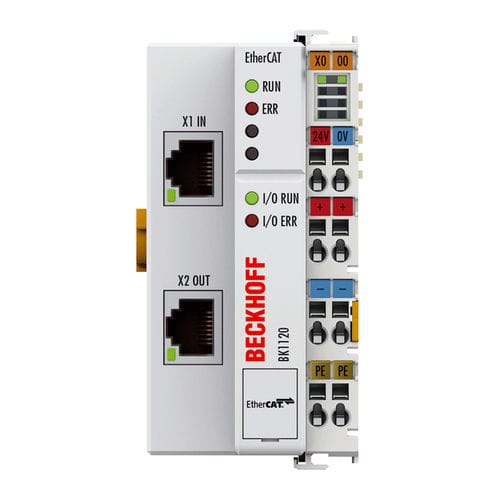The EtherCAT Couplers are the link between the EtherCAT protocol at fieldbus level and the EtherCAT Terminals. Since communication in the EtherCAT system is continuous through to the last terminal, the coupler only converts the physical layer without changing the process data stream.
There is a selection of three different technologies:
EtherCAT: ultra-fast communication standard
EtherCAT P: combines communication and power in one cable
EtherCAT G: speeds up to 10 Gbit/s
A distinction is made between a coupler, a junction and an extension. The EtherCAT Coupler is the head station with which the terminal segment starts. The junction can be placed anywhere in the EtherCAT segment and thus allows the setup of a star topology. The extension is plugged into the end of the EtherCAT terminal block and allows a setup with a line topology.
The products are available in different versions, depending on the required physical layer and additional functions.
Physical layer:
copper-based RJ45 connection
copper-based M8 connection
optical fiber connection for single- or multi-mode
POF (polymer optical fiber) connection
Additional functions:
ID switches for variable topologies
Hot Connect and Fast Hot Connect technology for changing topologies
integrated digital and safe I/Os for compact and space-saving solutions
Extended Distance connection for distances up to 300 m
metal housing and additional diagnostics for high-precision analog measurement technology






